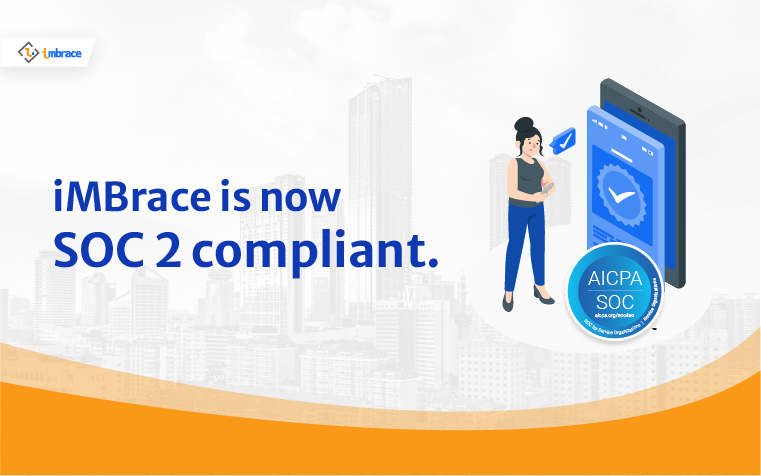
Exploring the Extensibility of Salesforce: What is a Salesforce integration?
Overview
"Salesforce is the go-to solution for businesses. Businesses are seeking powerful customer relationship management (CRM) capabilities. But did you know that its true power lies in its extensibility? Today, we dive deep into the world of Salesforce to unravel the myriad we can integrate with. From popular marketplaces to industry-specific tools. This blog post explores the vast application ecosystem that enhances Salesforce. It turns Salesforce into an unstoppable force in your business operations. "
Introduction to Salesforce Integrations
Salesforce is a customer relationship management (CRM) platform that offers a variety of features and integrations. Salesforce is to help businesses manage their customers and sales data. One of the most powerful aspects of Salesforce is its extensibility, which allows it to integrate with a wide range of other applications.
Salesforce offers two types of integration: point-to-point and middleware:
- Point-to-point integration
Point-to-point integration connects two applications together without the need for an intermediate server. This type of integration is used for simple integrations. Such as retrieving data from one application and storing it in another. - Middleware integration
Middleware integration is more complex. Involving an intermediary server that coordinates communication between the two applications. This type of integration is often utilized for systems that need real-time data synchronization. It is also used for bidirectional data exchange.
Types of Salesforce Integrations and Their Benefits
Salesforce's robust API allows easy integration with various third-party applications. This flexibility is one of the main reasons why Salesforce is such a popular CRM solution. There are many different types of Salesforce integrations, each with its benefits.
- Application Programming Interface (API) Integration
One type of integration is the application programming interface (API) integration. This type of integration allows Salesforce to exchange data with another application in real time. This benefits companies that share data between their Salesforce instance and another application. Such as an accounting or ERP system. - Software-as-a-service (SaaS)
Another type of Salesforce integration is the software-as-a-service (SaaS) integration. This type of integration allows companies to use Salesforce as a central hub for all their customer data. While still using other SaaS applications for specific tasks. This benefits company that want to use many SaaS applications but don’t want the hassle of managing many silos of customer data. - Cloud Computing Integration
The last type of Salesforce integration we’ll discuss is cloud computing integration. This type of integration allows companies to connect their on-premise applications with Salesforce. Companies take advantage of the scalability and flexibility of cloud computing. But still need to maintain control over their data and applications.

How many apps can Salesforce integrate with?
Salesforce is known for its versatility when it comes to integration. With a vast ecosystem of apps and tools. It can connect with many applications to enhance your business processes. So, how many apps can Salesforce integrate with?
Well, the answer is: quite a lot! Salesforce offers an extensive library of prebuilt integrations. It covers a wide range of functionalities. There are countless possibilities. From popular collaboration tools like Slack and Microsoft Teams. To accounting software such as QuickBooks and Xero.
Moreover, Salesforce's AppExchange marketplace further expands its integration capabilities. With over 5,000 apps available for download. You have the flexibility to find solutions tailored to your industry or unique business needs.
Whether you're looking to streamline your marketing efforts by integrating with platforms. Like MailChimp or HubSpot. Or seeking better customer service management through Zendesk or ServiceNow. Salesforce has got you covered.
So don't limit yourself. Explore the vast app integrations offered by Salesforce. Unlock new possibilities in managing your CRM system!
What software does Salesforce integrate with?
Salesforce is a powerful CRM platform that integrates with various software. To enhance its functionality and meet the diverse needs of businesses. This integration capability allows users to streamline workflows, automate processes, and improve communication across different departments.
- Microsoft Outlook
One popular software that Salesforce integrates with is Microsoft Outlook. Users can access their Salesforce data from Outlook by combining these two platforms. And also to sync emails, contacts, and calendar events between the two systems. This integration simplifies communication management. By capturing all customer interactions in one central location. - Google Apps
Another integrated software is Google Apps. This integration imports information from Gmail or Google Calendar into Salesforce records. It enables seamless collaboration among team members using G Suite tools. While keeping everything organized within the Salesforce ecosystem. - Project Management Software
Additionally, Salesforce integrates with popular project management software like Asana or Trello. This integration provides a centralized view of project tasks and progress within the CRM platform. Allowing teams to manage projects without switching between many applications. - Social Media
Furthermore, integrations with platforms like Facebook or Twitter are invaluable for businesses. In utilizing social media as part of their marketing strategy. These integrations enable companies to monitor social media activities, and track leads generated from social channels. With customers—all from within the Salesforce interface.
Salesforce's vast ecosystem includes integrations with numerous software options. Ranging from email clients to project management tools and social media platforms. This flexibility empowers businesses to customize their CRM experience. Based on their unique requirements while streamlining operations, improving efficiency across different areas. Such as communication management or task tracking.

Conclusion
As we’ve seen, Salesforce is an extensible platform that can integrate with hundreds of different apps and services. It provides businesses with a comprehensive suite of tools. For example, managing customer relationships, marketing automation, sales forecasting, analytics, etc. It is good for companies to streamline their operations and maximize efficiency. By integrating Salesforce with other apps, you will gain access to a broader range of resources. This will help you maximize your investments in technology.
You may also want to know more about NetSuite Integrations, visit this blog: The Ultimate Guide to NetSuite Integrations: What You Need to Know
Join iMBrace and increase your productivity.


